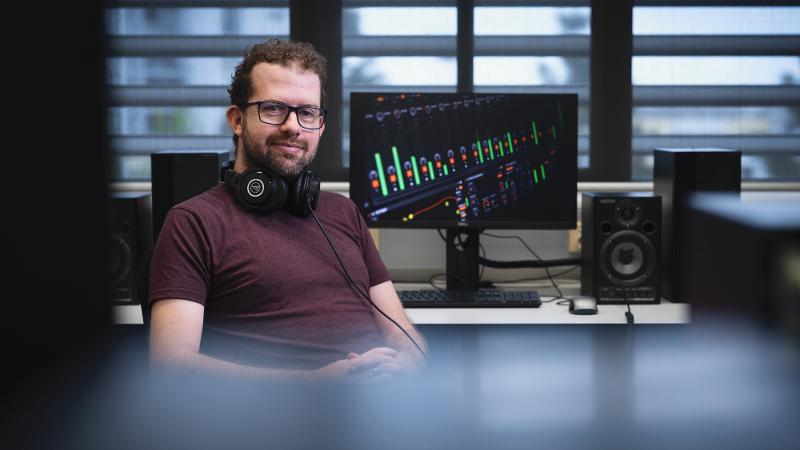
Australian musicians are having global critical and commercial success in the digital games industry, where music is crucial for developing atmosphere, conveying narratives and framing player interactions.
Australian composers and musicians are finding new and innovative opportunities to work within to composing new dynamic soundtracks for specific games, and conducting live performances of game music.
With the right targeted support to address the field’s emerging challenges, game music is set to become an increasingly important platform through which Australian musicians of all stripes can reach global audiences.
The Australian Music and Games 2023 Benchmark – the first ever investigation into the scope and scale of Australia’s game music sector – was launched on APRA AMCOS’s music for games conference High Score.
QUT researcher Dr Brendan Keogh (pictured above) co-authored the report with Associate Professor Dan Golding, of Swinburne University. The report was commissioned by Creative Australia and paints a picture of a sector brimming with creativity, confidently performing on the global stage alongside far bigger national sectors.
The benchmark also exposes some entrenched and emerging challenges facing the field, and identifies new opportunities for Australian game music to flourish and grow.
"Our Australian Music and Games 2023 Benchmark has highlighted just what an important role Australia’s musicians and composers will be able to play in this growing industry,” Dr Keogh said.
“Australia’s game music workers are creative, more often than not composing and performing original music for digital games made both in Australia and around the world.
“They’re also highly respected and appreciated by developers and players alike as creators of a crucial, fundamental aspect of digital game experiences.”
Creative Australia's Head of Music, Kirsty Rivers, said: "The Australian Music and Games 2023 Benchmark is a fascinating reminder of how important music is to the game experience. The Benchmark helps us to understand more about how the music and game industries work together and, in doing so, are reimagining digital gaming.”
Other key findings include:
- Australian game music workers are recognised as crucial and central collaborators by Australian game developers.
- Australian game composers are more likely to retain rights and opportunities compared with workers in other screen music sectors.
- While unpaid work remains common, Australian game music workers earn more than the average musician.
- Australian game music workers work under a vast range of conditions, and rarely undertake game music work full-time.
- The gender and racial inequities of both the digital game and screen composing sectors continue into the game music space, with three-quarters of all game music workers identifying themselves as male, and 72 per cent as white, Caucasian, or European. While opportunities for Australia’s game music sector are rapidly growing, they are not growing for all game music workers – current or potential – at an equal pace.
"Gaming isn't just an industry it's also an art form,” Ms Rivers said.
“According to a recent study by the Interactive Games and Entertainment Association, 94 per cent of Australian households have a gaming device and 70 per cent of those who play video games do so to improve their mental health.
“Gaming is a fantastic way to tell Australian stories through gaming music and there is now a 30 per cent tax deduction for eligible game developers so hopefully this will encourage more composers to get involved.”
The report is available on Creative Australia's website.
Media contacts:
Rod Chester, QUT Media
07 3138 9449, rod.chester@qut.edu.au
After hours: 0407 585 901, media@qut.edu.au
Sean Brogan, Media Manager, Creative Australia Mobile
0498 123 541, sean.brogan@creative.gov.au


